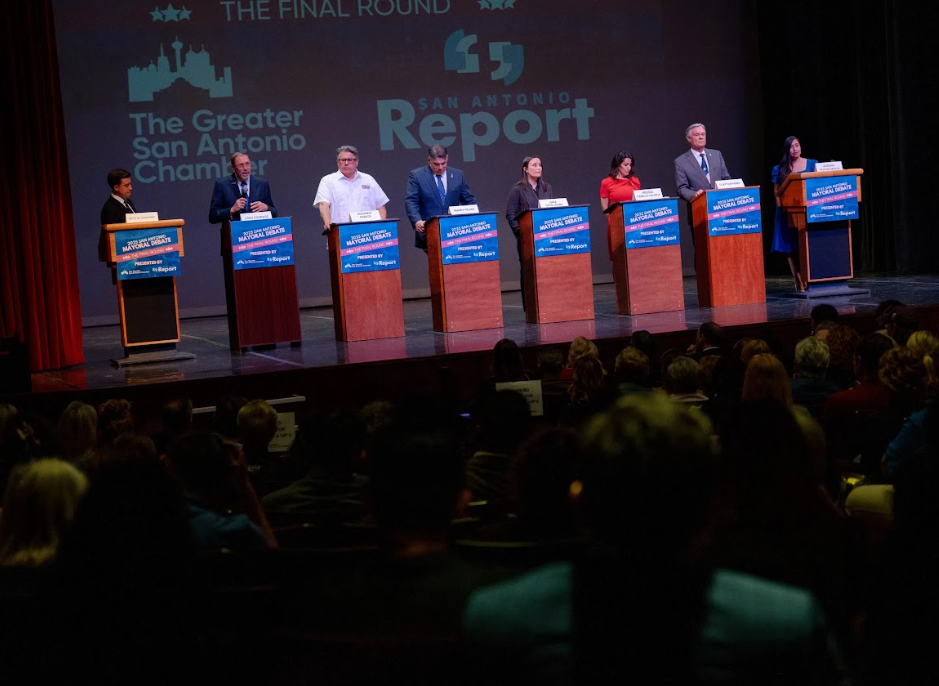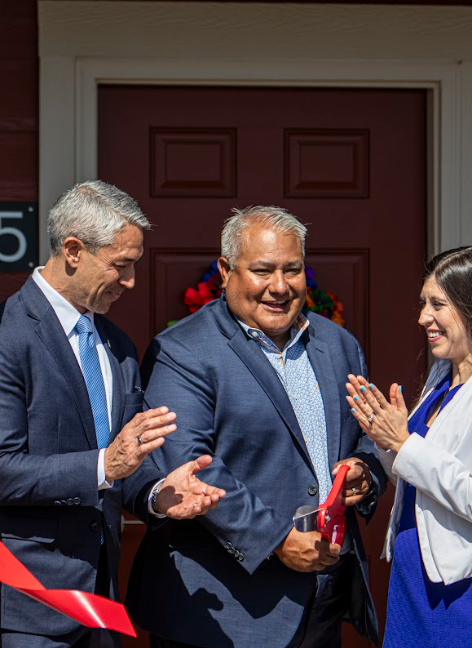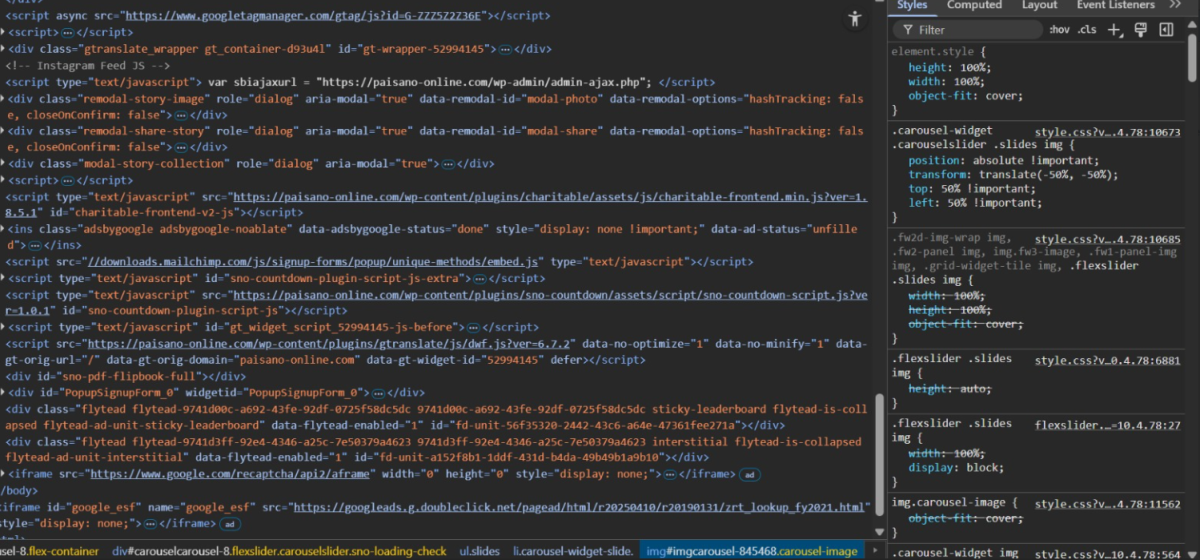_sexual_assalt__gallery.jpg)
Marcus Connolly, The Paisano
Despite being one of the largest universities in the state, a disproportionately small number of forcible sexual offenses are committed each year.
UTSA’s 2014 Annual Security Report only recorded a total of seven forcible sex offenses for on-campus and non-campus properties in 2013, contradicting findings by the National Institute of Justice’s (NIJ) Bureau of Justice Statistics.
For every 1,000 women attending a college or university, there are 35 incidents of rape each academic year, with less than 5 percent of completed or attempted rapes against college women reported to law enforcement, according to the NIJ.
Over 28,000 students were enroled at UTSA for the Fall 2014 semester.
“There is no way that there have only been seven (forcible sexual offenses) on our campus (in 2013),” said Lilian-Ann Bonaparte, senior political science major and president of The UTSA Collective.
Bonaparte argues UTSA’s low reports of sexual violence misrepresents campus safety and is rather an indication of victims’ reluctance to report incidents. “We live in a society where rape is normalized. We live in a rape culture, and I think such a low result is not realistic, and it’s not something that UTSA should be proud of.”
On April 1, the U.S. Department of Education’s Office for Civil Rights (OCR) released a list of 106 Higher Education Institutions with Open Title IX sexual violence investigations for mishandling sexual assault cases — including Texas’ Cisco Junior College and The University of Texas-PanAmerican — to bring attention and awareness to the importance of fighting against sexual violence.
Section 9.01 of UTSA’s Handbook of Operating Procedures defines sexual assault as “any criminal offense under the Texas Penal Code of a sexual nature, including rape, sexual assault, sexual battery, sexual coercion or other acts of sexual violence.”
“While I think it’s very likely that there are students who have not reported incidents of sexual violence, I think UTSA’s low number of reports probably has a lot to do with our on-campus life,” said Misty Blaze, vice President of Sigma Tau Delta’s Beta Omega Chapter.
“I think we’re really different from larger universities,” Blaze continued. “We don’t have a really big community living and playing on campus—we don’t even have Greek housing. Yes, a lot of students do live in the dorms and the apartments, but I think for the most part, students come to class and then they leave. I think that if an incident occurs off-campus, students are less likely to report it.”
Venessa Onwuchekwa, a psychology and pre-nursing major, argues UTSA’s 2014 Annual Security Report is inaccurate based on her knowledge of incidences when sexual violence remained unreported.
“One (incident) was by an athlete and they didn’t want to get the athlete in trouble,” said Onwuchekwa. “There was a sense of fear, and they didn’t want their family to look at them any different. He wasn’t a complete stranger, she had been around this person, she partied with this person and woke up and this person was on top of her. He drugged her— things like this happen all the time. If they can get away with it once, what is stopping them from doing it again?” Onwuchekwa asked.
UTSA’s 2014 Annual Security Report recommends that “anyone who is a victim of any form of sexual assault, domestic and dating violence and stalking should immediately call the UTSA Police Department by dialing 4911 on campus or by calling 210-458-4911. Victims may also report in a confidential manner to the University Counseling Services (210-458-4140) or Student Health Services (210-458-4142).”
Investigations by UTSAPD are conducted according to the guidelines established by the Texas Penal Code, Code of Criminal Procedure and the Bexar County District Attorney’s Office.
Despite the available resources, many victims often forgo the option to report a sexual offense to the university and choose to remain silent.
“I know someone that was sexually assaulted off campus, I know she was just one of many,” Bonaparte alleged. “She left UTSA and didn’t report it because he was very prominent, very active on campus and highly known in clubs and fraternities.
Bonaparte voiced concerns that victims of sexual violence face when they decide whether to report the incident. “If she were to tell on him, first of all, who would believe her, second of all, what would be done, and third, was she ready for the backlash that she would have received?”
“We live in a rape culture,” Bonaparte stated. “People are going to find a way to blame you or tell you that you are just making it up and trying to bring a good man down. A lot of people like to deny the fact or just reject survivors testimonies of what happened.”
According to the Centers for Disease Control and Prevention (CDC), one in five women and one in 59 men in the United States is raped in his or her lifetime, and most assaults occur before the age of 25. However, because the majority of incidents go unreported, the numbers for sexually violent acts are artificially low.
English major Doris Waid also believes the emotional impact of rape can affect the victim’s decision to report sexual violence incidents.
“When sexual violence occurs, power is forcefully removed,” Waid said. “When power is removed, it often leaves one hopeless and ashamed. People struggle dealing with this, which makes it difficult to face, discuss and report.”
Bonaparte agrees. “I think it’s evident that so many women and men are not reporting. No one really likes coming out and no one really likes being public about it, especially when you are going through something as traumatic as sexual assault.
The UTSA Inter Fraternity Council (IFC) hosted a UTSA Call to Action Day, on Tuesday, April 7 as part of National Sexual Assault Awareness and Prevention Month. The event was designed to reduce sexual violence through education.
However, UTSA’s involvement in sexual violence prevention comes as a surprise for some students. “I have never heard of any sexual violence prevention on campus,” said Waid. “I don’t believe I’ve ever seen anything about the topic on campus. I’ve never read of or heard of sexual violence prevention at UTSA until a recent survey. This is only the second time, in five semesters, that I’ve heard anything about sexual violence prevention at UTSA.”
When asked what steps UTSA could take to further prevent sexual violence of students both on and off campus, Blaze offered a reasonable solution. “At least two officers from every UTSA organization have to attend State Mandated Risk Management Training every year. During the training, you learn about what qualifies as harassment and assault, and how to go about reporting it. I think if all students, not just those involved in clubs and other societies, were given this information it could help people feel more comfortable reporting incidents of abuse.”
Bonaparte suggests an official UTSA “Don’t Rape” campaign to promote sexual assault awareness and prevention. “I think a campaign of some sort urging (students not to) rape is where we should start. Everyone knows no means no, but that hasn’t stopped anybody.”
#UTSA, #Sexual Assault







